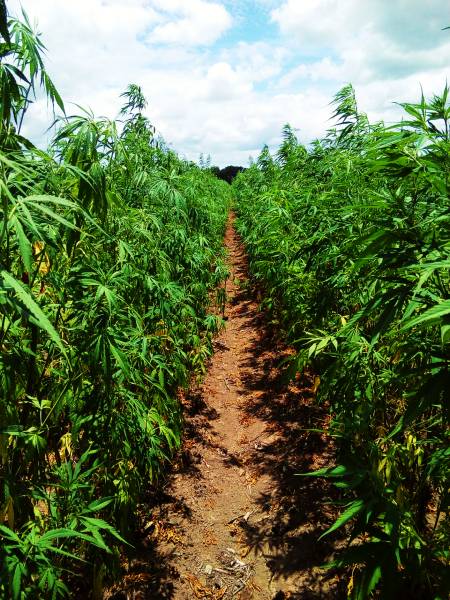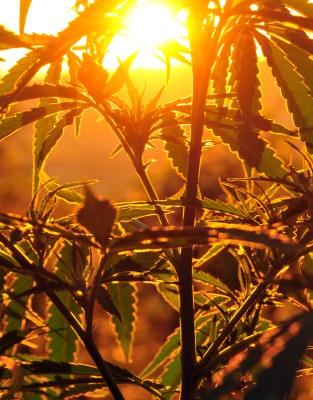About Us
Who We Are
SatiVite is a very different kind of medical cannabis company, one with a vision for a new sustainable kind of production and medicine. SatiVite was established by a diverse group of experienced farmers, scientists, innovators, researchers and patients – not in some big city boardroom. Our mission is to provide the best, sustainably produced medicinal cannabis products to patients in Australia and beyond.
Where We’re Coming From
SatiVite’s roots are in sustainable agriculture and patient advocacy for medicinal cannabis. As patients ourselves, we know that medical professionals want assurance they are prescribing safe, effective and affordable treatments to their patients. A growing body of research globally is proving that medical cannabis, while not a cure-all, can be that safe, effective and affordable treatment for a range of symptoms and conditions, often with fewer risks and side effects than traditional pharmaceuticals.
Medical cannabis is very different than what can be purchased from the “black market”. Medical cannabis, available only from specially licensed companies, is produced in compliance with strict regulations to ensure safety and quality, e.g., using tested, non-contaminated soil and water, only naturally derived fertilizers and strict pest-management protocols, as well as stringent laboratory testing to ensure that what’s promised on the label is actually what’s in the package.
In addition, many medical professionals and patients care about the environment and the impact on it of what they consume, including their food and medicine. We do too. As farmers, our roots are in sustainable agriculture. As researchers, we rely on science to consistently improve our sustainable methods, safety and quality outcomes. And, as patients, we believe in the power of the plant, grown as naturally as possible, to naturally treat a range of health issues.

What We Do
We combine decades of sustainable agricultural know-how, deep expertise in the medicinal cannabis industry, and international business experience to bring the best medical cannabis products available globally to patients throughout Australasia.
Currently, as a licensed medical cannabis wholesaler, we seek out, import and distribute the best cannabis – selected varieties of high-quality organically and sustainably grown dried flower and broad-spectrum extracts with a range of profiles, as well as the best cannabis-based medicines and delivery devices we can find from leading licensed suppliers in countries that have also legalized cannabis for medical and research purposes. In keeping with our sustainability ethos, each supplier is also evaluated for their environmental stewardship.
We provide these products – all certified to global standards such as EU – to patients with medical authorizations/prescriptions through our medical and pharmacy partners and soon, from Sativite’s own Brisbane-based distribution centre and on-line pharmacy.
Where We’re Going
As licensed growers and researchers, we’re developing and cultivating field-grown, high-CBD varieties in Queensland and New South Wales. We’re also ramping up to produce Australian-grown, GMP-certified medical cannabis in our own custom engineered glass houses in New South Wales.
As experienced agronomists and farmers, we’re also investing in research and breeding programs, in collaboration with open-science projects in Australia and abroad, to develop new cannabis varieties specifically grown for the treatment of a range of medical conditions as well as for the industrial cannabis industry (food and fibre).
As innovators and environmentalists, we know it’s essential to reduce all kinds of waste in the production of industrial cannabis and medicinal cannabis, including the excess raw plant material, which shouldn’t be wasted. So, we’re also investing in R&D to explore alternative uses for this material, including seeds for food, animal grain and oil, and fibre from plant stalks for use in everything from geotextiles to packaging and fine linens.
Sativite is supplementing its existing suite of licenses with medicinal cannabis cultivation and manufacturing licenses (research application pending). These applications are pending ODC approval (expected soon).

Becoming Part of the Solution
At Sativite, we are focused on providing safe, effective products to patients as sustainably as possible. For example, our medical cannabis is grown outdoors in green-fields operations using environmentally friendly cultivation methods, including the use of organic and regenerative agricultural practices. Our goal throughout our operations is to produce affordable, high-quality medical cannabis with a minimal carbon footprint.
“We’re doing things like building up soil quality through natural methods rather than pumping the soils full of fertilisers, which then run off into nearby water resources.”
Mike Cleary, CEO

- 80-90% of all steel ever produced is still in use today.
- Recycling 1 ton of steel conserves 2,500 lbs of iron ore, 1,400 lbs of coal and 120 lbs of limestone.
- Steel tins today weigh 33% less than they did 25 years ago. Thinner, stronger rolled steel requires less raw material.
- 71% of steel tins are recycled/re-used.
- 1810 was the year the steel tin was invented, to feed Napoleon’s army.
Sativite is also tackling the packaging waste issue head-on. We’re working with our suppliers to implement innovative packaging solutions to ensure patients receive the freshest product while reducing waste. For example, since oxidation affects flavour, aroma and potency of cannabis treatments, our dried flower products are packed in steel tins, not plastic. These custom-made tins are not only 100% recyclable, they are finished with liquid nitrogen, a safe, odourless gas used in food packaging of all kinds to reduce oxidation and inhibit the growth of mould, yeast, and aerobic bacteria. Yes, they cost a bit more. But they also enable us to deliver a better product to patients while significantly reducing waste and demand on landfills.
Follow us: